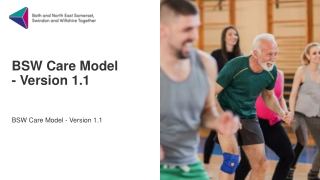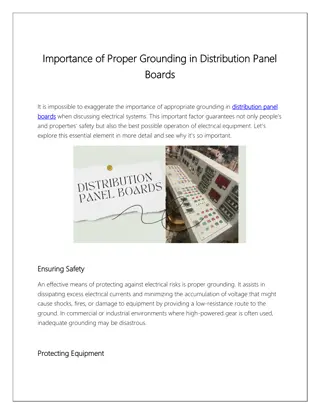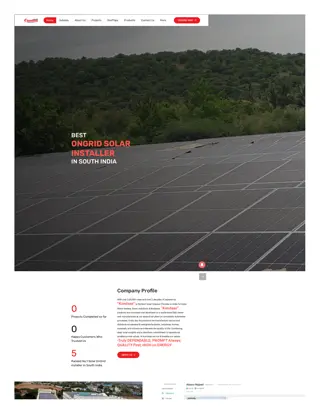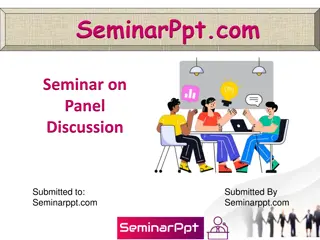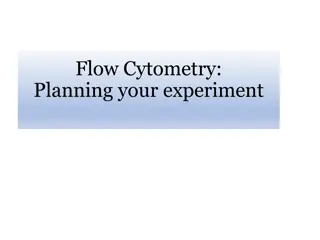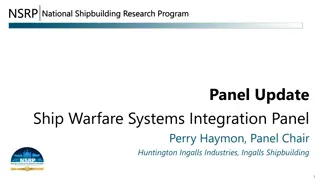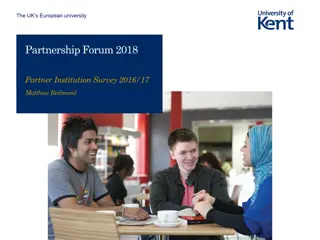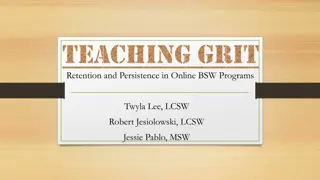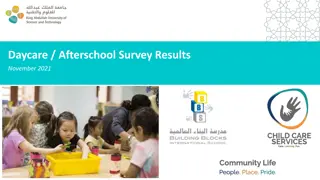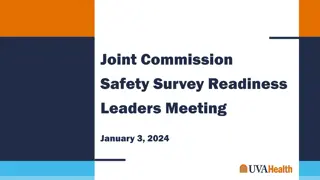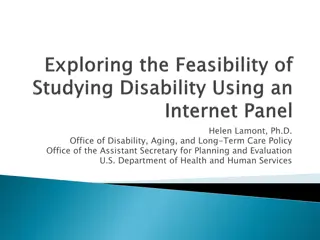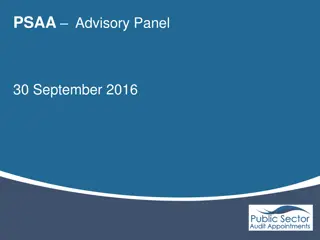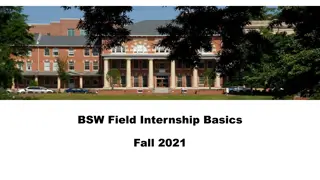Our Health, Our Future Panel Survey 6 Results on Urgent Care and Primary Care Conducted from July to August 2021
The Our Health, Our Future Panel conducted Survey 6 on Urgent Care and Primary Care from 26th July to 23rd August 2021. This survey aimed to gather insights from residents in Bath and North East Somerset, Swindon, and Wiltshire to shape healthcare services. The report structure includes an introduction, overview summary, results on keeping well, urgent care, and primary care, along with panel profiles and response rates. The panel's vision is to engage the community to influence health initiatives, with a strong emphasis on inclusivity and data-driven decision-making.
Download Presentation

Please find below an Image/Link to download the presentation.
The content on the website is provided AS IS for your information and personal use only. It may not be sold, licensed, or shared on other websites without obtaining consent from the author.If you encounter any issues during the download, it is possible that the publisher has removed the file from their server.
You are allowed to download the files provided on this website for personal or commercial use, subject to the condition that they are used lawfully. All files are the property of their respective owners.
The content on the website is provided AS IS for your information and personal use only. It may not be sold, licensed, or shared on other websites without obtaining consent from the author.
E N D
Presentation Transcript
Our Health Our Future Panel Survey 6 results A survey on Urgent Care and Primary Care Survey conducted 26thJuly to 23rdAugust 2021
Report structure 1. Introduction Page 2 2. Overview summary Page 6 3a. Survey 6 results Keeping well Page 9 3b. Survey 6 results Urgent Care Page 12 3c. Survey 6 results Primary care Page 24 4. Appendices Panel profile Page 34 1
Section 1 Introduction 2
Section 1 - Introduction Vision and mission of the Our Health Our Future Panel The Our Health, Our Future (OHOF) Panel is a way for us to engage with those living in Bath and North East Somerset, Swindon and Wiltshire (BSW) to get their views on health and care issues. In line with our value of "inclusive", the online panel is made up of a representative sample of the population from across our region. Panel members will take part in regular surveys throughout the year. Panel surveys will inform both strategic direction and day-to-day service delivery, particularly around proposed service change or development of new services. Anonymised feedback will be shared with project managers and senior leaders to help shape and influence partnership initiatives and programmes of work. Anonymised feedback will also be made publicly available so panel members and the wider public will have the opportunity to review the results 3
Section 1 - Introduction Response rates remain strong A 40% response rate is considerably higher than the average response rate for similar panels. Approx 40% remains the target response rate for OHOF Survey 1 (Jan to March 2020) Survey 2 (May 2020) Survey 3 (Jul/Aug 2020) Survey 4 (Nov/Dec 2020) Survey 5 (March/Apr 2021) Survey 6 (Jul/Aug 2021) Number of participants 790 381 382 501 395 381 Response rate 100% 48% 45% 50% 40% 38% All conducted via via face to face recruitment interviews Including 200 face to face recruitment interviews Conducted online/ postal/ telephone only Conducted online/ postal/ telephone only Conducted online/ postal/ telephone only Conducted online/ postal/ telephone only Method 4
Section 1 - Introduction We have a robust and representative panel % of BSW entire population/survey 6 participant rim weighted profile (381) % of our actual panellist profile as at Aug 2021 (1,011) 22% BaNES 23% 27% Swindon 26% 51% Wiltshire 51% NB: Survey 6 participants responses have been rim weighted to reflect the exact profile of the BSW population (according to census data and JNSA). 49% Male 37% 51% Female 63% A more detailed panel profile is given in Section 4 of this report. 15% 16-24 years 15% 32% 25-44 29% 32% 45-64 35% 11% 65-74 15% 10% 75+ years 6% 94% White 92% 6% BAME 8% 5
Section 2 Overview summary 6
Section 2 Overview summary Keeping well / Urgent care perceptions Overall, panellists consider that a healthcare scenario that can wait for 2 or more days is a routine one (e.g. general aches & pains, cold & flu, routine checks). Something needing attention in 4 to 24 hours becomes an urgent need (e.g. persistent/ severe pain or fever) and if help is needed within 2 to 3 hours it becomes an emergency (e.g. heart attack, severe bleeding, broken bones, breathlessness, stroke) If experiencing an URGENT HEALTHCARE NEED, having confidence in the advice that is given to you is the most critically important factor, followed by being in the right/ best place for the treatment needed o Speed of assessment and treatment are the next two most important factors Survey 6 was conducted after restrictions had been lifted and as the vaccination programme was well under way. This potentially explains why the feeling of control in one s life has returned to a higher level this time The 25-44 year old age group are the fastest escalating sub-group o Telling one s story once only is of particular importance to those with LTC s If experiencing an URGENT HEALTHCARE NEED: o just over one third would be happy to use online healthcare services first for advice about what to do/where to go. Just under one half would prefer telephone or video consultation/advice first. The remainder, one fifth would prefer to walk directly in to the service they feel is best, without any prior contact Website/online communication (75%) and an NHS APP (67%) receive the highest levels of interest, in terms of increasing the public s knowledge about health services and accessing these services Scores for feeling healthy , however, are at their lowest level since the OHOF panel was formed o just under one half would want to be able to walk in without an appointment following advice. Just over one half would want a booked arrival time at a service location following advice o Information leaflets are favoured by just over a third of participants, particularly females and those aged 75 and over o the most popular locations for being seen/ assessed are GP practices (81%) and MIU/ UTC s (69%) o the most popular HCP to see is a GP (93%), followed by a Nurse (63%) Even though 70% of panellists know how to do CPR, only 30% are confident enough to provide it, a further 24% would like to be trained in providing CPR The distribution of distances that people are prepared to travel for urgent healthcare needs is evenly spread across 4 options: a minimum distance, 5 miles, 10 miles and 15 miles 7
Section 2 Overview summary Primary care appointments 45% of those who had made a GP appointment in the last 15 months had a face to face appointment, 53% a telephone appointment and 2% a video/online appointment o Of those who had a face to face GP appointment, only 1 in 10 (10%) had asked for it themselves, rather than it being offered by the GP o Of those who had a telephone, video or online appointment, 1 in 6 (15%) had asked for a face to face appt but couldn t get one One quarter of BSW residents have NOT made a GP appointment in the last 15 months o The majority of these, just under three quarters, had not needed to make a GP appointment in that time o A further approx. one in ten of these individuals did not want to put the NHS under further strain (this equates to 1 in 50 of all adults in BSW region) o One in five tried to make a GP appointment but were unsuccessful, most of these went on to use an alternative (mainly NHS 111) (this equates to 1 in 25 of all adults in BSW region) Most patients, 95%, saw the type of HCP they wanted to. 3% would have preferred to see a GP rather than a nurse and 2% a physio or nurse rather than a GP For two thirds, 65%, of all patients, the appointment fully met their needs (This rises to 84% for face to face appts and drops to 50% for telephone/ video appts) Among those who have NOT made a GP appointment in the last 15 months, there are strong awareness levels (over 90% in each case) for most of the factors relating to patient use of a GP practice since the pandemic began o 30% said their needs were met partially but they needed further support either from another service (16%) or their GP (14%) A majority of patients phoned their GP practice to book their most recent appointment. One in ten used an online facility o The exception is awareness of the possibility to consult with a GP practice via their website/ online consultation, this was lower at 74% o Three quarters of patients found it very or quite easy to book their appointment and a further 10% found it neither easy nor difficult o Those who booked online through the website found it easier on the whole than those who phoned the Practice (the main difficulty being the length of time it takes to get through to the receptionist to book an appointment) 8
Section 3a Survey 6 results Keeping well 9
Section 3a Survey 6 results Keeping well Keeping well trackers feeling healthy scores are the lowest since the panel was formed 90% 84% 100% 91% 90% 83% 82% 82% 77% (% giving a score of 7 or more out of 10) 80% 79% 81% 72% 71% 69% 75% 69% 73% 70% 70% 69% 66% Feeling healthy 60% 50% Feeling in control 40% 32% 27% 27% Feeling happy 26% 30% 21% 20% Feeling lonely 10% Not asked 0% Survey 1 (Jan-Mar '20) Survey 2 (May '20) Survey 3 (July-Aug '20) Survey 4 (Nov-Dec '20) Survey 5 (Mar-May '21) Survey 6 (Jul-Aug '21) Vaccine approval Post freedom day . Vaccination programme well under way Lockdown 1 Lockdown 3 Q1. Do you consider yourself to be Base: n=total participants in each survey 10
Section 3a Survey 6 results Keeping well Keeping well trackers across the sub-groups Survey 6 was conducted after restrictions had been lifted and as the vaccination programme was well under way. This potentially explains why the overall feeling of control in one s life has returned to a higher level this time. Scores for feeling healthy , however, are at their lowest level since the OHOF panel began A number of sub-groups gave consistently lower scores, especially for feelings of health and happiness, these were: o Those in Swindon o Panellists from BAME backgrounds o Those aged 16-44 years o Those with long term health conditions (especially depression and diabetes) o Those who are unpaid carers All the differences mentioned in purple aboveare statistically significant differences 11
Section 3b Survey 6 results Urgent care 12
Section 3b Survey 6 results Urgent care Overall, panellists consider that a healthcare scenario that can wait for 2 or more days is a routine one. Something needing attention in 4 to 24 hours becomes an urgent need and if help is needed within 2 to 3 hours it becomes an emergency However, there are some differences across sub-groups: Routine Urgent Emergency o Those aged 75+ escalate more slowly than other age groups (only 24% say urgent at 1 day and 58% at 6 to 12 hours) Something that I need help with.. 95% 4% ..but it can wait for longer than 3 days 1% 81% 18% ..but it can wait for 2-3 days o The opposite is true for those aged 25-44 years,they escalate much more quickly (33% say urgent at 2-3 days) 1% 45% 50% ..but it can wait for 1 day 5% o Malesescalate more quickly than females (51% of males say emergency at 4 hours) 11% 71% ..within the next 6 to 12 hours 18% o BAME participants escalate to emergency more quickly (73% say emergency at 4 hours) 6% 56% ..within the next 4 hours 38% 7% 30% ..within the next 1 to 2 hours 63% o Those with LTC salso escalate more quickly than others (24% say emergency at 1 day) 4% ..immediately 93% Q2. Looking at the list of potential scenarios below, could you say whether you would personally consider each one to be BEST described as a routine healthcare need , an urgent healthcare need or an emergency healthcare need . Base: n=366, total participants answering this question 13
Section 3b Survey 6 results Urgent care The following are examples of what panellists would consider to be routine, urgent and emergency healthcare needs (unprompted question) ROUTINE URGENT EMERGENCY Heart conditions/ attack, murmurs, problems 48% General aches and pains (back pain, migraine, joints, chest pain, sprains) 37% Persistent, severe pain (back pain, migraine, swelling, chest pain, sprains) 37% (n.b. BAME 70%) Injury/ cut with severe/abnormal bleeding 32% Cold and flu symptoms, sore throat 23% Persistent, severe cough, coughing blood, fever, high temperature, chest infection 14% (n.b. 25-44 yrs 29%) Broken limbs, bones, dislocation 22% Blood tests, blood pressure, screening 19% Sudden deterioration, dizziness, fainting, change in condition/ symptoms worsening 12% (n.b. 25-44 s 26%, and LTC s 24%) Breathing difficulties, breathless 18% Repeat prescription, medication 16% Stroke, slurred speech 16% Monitoring ongoing conditions, diabetes check 15% Broken limbs, bones, fractures 10% Loss of consciousness 8% Dermatology, rash, moles, eczema 14% Injury/ cut with severe/abnormal bleeding10% Persistent, severe pain (back pain, migraine, swelling, chest pain, sprains) 8% General check up, annual review 12% Dermatology, rash, moles, eczema 8% Sudden deterioration, floppy, dizziness, fainting, change in condition/ symptoms worsening 6% Ears, blocked/wax, infections 9% Heart conditions/ attack, murmurs, problems 6% Foot problems, athletes foot, fungal infections 6% Infection requiring antibiotics 6% (n.b. 25-44 yrs 15%) Head injury 6% Eye conditions, glaucoma 5% Severe vomiting, diarrhoea 6% Life threatening, need of A&E, ambulance 5% Breathing difficulties 4% Unexplained lumps 4% Mental health crisis, life threatening 5% Q3. Could you now give one or two examples of problems or conditions that you would personally consider to be ROUTINE/ URGENT/ EMERGENCY healthcare needs. Base: n=318, total participants answering this question 14
Section 3b Survey 6 results Urgent care If experiencing an URGENT HEALTHCARE NEED, just over one third would be happy to use online healthcare services first for advice. Just under one half would prefer telephone or video advice first. One fifth would prefer to walk directly in to a service without prior contact I would be happy to use online healthcare services who could then advise on the best course of action for me (eg. NHS 111 or DoctorLink or via an NHS APP) 37% I would want to talk to someone first by telephone or video consultation who could then advise on the best course of action for me (eg. my GP, NHS 111, 999) 45% I would want to go directly to the service that I think best suit my needs without contacting anyone first 18% One third of those aged 75+ would want this option. As would one third of those with LTC s 54% of those aged 16-44 years would be happy with this option but only 8% of those aged 75+ 55% of those aged 65+ would want this option. As would 75% of BAME panellists Q4. If you were experiencing an urgent healthcare need (like the ones you may have mentioned earlier, i.e. urgent but not an emergency situation), which of the following actions would you most want to take at first? Base: n=333, total participants answering this question 15
Section 3b Survey 6 results Urgent care If experiencing an URGENT HEALTHCARE NEED, just under one half would want to be able to walk in without an appointment following advice. Just over one half would want a booked arrival time at a service location following advice. Most sub-groups followed this same pattern, however those in Swindon were slightly more likely to say they would prefer to walk straight in, 55%. Those in BaNES would be slightly more likely to want a booked slot, 62% I would want to be able to walk in to a Walk-in I would want to be able to walk in to a service location without an appointment following advice Pre-book I would want a booked arrival time at a service location following advice 53% 47% Q5. If you were experiencing an urgent healthcare need (like the ones you may have mentioned earlier, i.e. urgent but not an emergency situation), and were advised to go to a service, would you want to be able to walk in at any time or have a booked time slot? Base: n=333, total participants answering this question 16
Section 3b Survey 6 results Urgent care If experiencing an URGENT HEALTHCARE NEED the most popular locations for being seen/ assessed are GP practices and MIU/ UTC s One half would also be happy with a telephone or video consultation at their own home and slightly fewer a community hospital visit A pharmacy and a hospital ED were less frequently selected options. The exception being 25-44 year olds, where 40% selected an ED 81% GP Practice 69% MIU/ UTC 51% Tel/ video consultation at home 45% Community hospital 30% Pharmacy 40% of 25-44 year olds selected this option 26% Hospital emergency department Q6. If you were experiencing an urgent healthcare need (like the ones you may have mentioned earlier, i.e. urgent but not an emergency situation), in which of the following locations would you ideally want a healthcare professional to see/assess you? Base: n=316, total participants answering this question 17
Section 3b Survey 6 results Urgent care If experiencing an URGENT HEALTHCARE NEED the most popular HCP to see or speak to is a GP, followed by a Nurse Paramedics, Pharmacists, Consultants, Physios and Therapists are selected on the basis of differing urgent scenarios 93% GP 63% Nurse 64% of 25-44 year olds selected this option 48% Paramedic 42% Consultant 33% Pharmacist 25% Physio 20% Therapist 4% Any qualified HCP Q7. If you were experiencing an urgent healthcare need (like the ones you may have mentioned earlier, i.e. urgent but not an emergency situation), what sort of healthcare professional would you ideally want to see or speak to? Base: n=316, total participants answering this question 18
Section 3b Survey 6 results Urgent care If experiencing an URGENT HEALTHCARE NEED the average time and distance panellists are prepared to travel (if advised to do so) is 8 miles or 16 minutes This average rises to 10 miles and 20 minutes for the under 45 age group and drops to 7 miles and 14 minutes for those with LTC s The actual distribution is fairly evenly dispersed across 4 main options: a minimum distance, 5 miles,10 miles and 15 miles Within a 30 mile radius or 60 minutes travel time 3% Within a 15 mile radius or 30 minutes travel time 22% Within a 10 mile radius or 20 minutes travel time 25% Within a 5 mile radius or 10 minutes travel time 22% 23% As close to my home as possible I would only want/be able to be seen in my own home 4% Q8. Approximately how far would you be prepared to travel to an urgent healthcare service, if you were advised that this was the best course of action for you? Base: n=316, total participants answering this question 19
Section 3b Survey 6 results Urgent care If experiencing an URGENT HEALTHCARE NEED, having confidence in the advice that is given to you is the most critically important factor, followed by being in the right/best place for the treatment needed Speed of assessment and treatment are the next two most important factors Not important Neutral Quite important Very important 81% Having confidence in the advice that is given to me 17% 2% 59% 35% Being in the right/best place for the treatment I need/ my needs 5% 46% 48% Being seen/treated by a healthcare professional quickly 5% 47% 43% Being assessed quickly 9% 30% 46% Having regular updates about what is happening in my case 22% Telling one s story once only is of particular importance to those with LTC s, 40% very and 36% quite 21% 33% Having to tell my story ONLY ONCE 33% 13% Q9a. If you were experiencing an urgent healthcare need (like the ones you may have mentioned earlier, i.e. urgent but not an emergency situation), how important would each of the following factors be to you in your subsequent treatment? Base: n=313, total participants answering this question 20
Section 3b Survey 6 results Urgent care Other factors (not already mentioned) that are important to people in their subsequent treatment of an urgent healthcare need (unprompted) Those who made additional points here emphasised the need for joined up and integrated subsequent care, to be delivered by appropriately experienced HCP s. The need for ensuring the patient feels listened to and properly understood was also significant, along with ensuring that the case is followed up HCP s must be appropriately experienced My concerns being taken seriously, being believed, not feel I m being a nuisance, non- judgemental HCP s, being treated with respect Communication of information between departments/staff, sharing of information Follow-up treatment - consistency, appropriate information given to me/updates, appropriate waiting time, ability to phone/ email for further advice 20% 21% 14% 19% Being able to understand the diagnosis, advice is properly discussed/ delivered (plain English/ written down) Consideration/ challenges of treating children 9% 5% Q9b. Is there anything else that would be important to you in your subsequent treatment, anything that we haven t already mentioned? Base: n=97, total participants answering this question 21
Section 3b Survey 6 results Urgent care Online communication and an NHS APP receive the highest levels of interest, in terms of increasing the public s knowledge about health services and accessing these services Information leaflets are favoured by just over a third of participants, particularly females and those aged 75 and over 81% of 16-44 year olds and 83% of males selected this option 75% Online/ websites (reading or videos) 81% of 16-44 year olds selected this option 67% Via an NHS APP Information leaflets in the community e.g. doctor s surgery, library 69% of 75+ s and 49% of females selected this option 37% 8% Dedicated webinars 2% Ads/ info on social media 1% Ads/ info on TV/ radio, print media Q10. What is the best way for us to help increase your knowledge about health services and how you can access them (before you may need to access them)? Base: n=312, total participants answering this question 22
Section 3b Survey 6 results Urgent care CPR whilst 70% of panellists know how to do CPR, only 30% are confident enough to provide it A further one quarter would like to be trained in CPR (Rising to 23% of those aged 75+) 7% I know how to do CPR and I would feel confident to provide it 30% 24% (Rising to 30% of males) (Rising to 45% of those aged 25-44) I know how to do CPR but I do not feel confident to provide it I do not know how to perform CPR but I would like to be trained how to do it I do not know how to perform CPR and I do not want to know how to do it (Rising to 74% of those aged under 25) 40% Q11. We would now like you to think about the provision of CPR (Cardiac Pulmonary Resuscitation) in a life- threatening situation for a family member or a stranger. Which of the following statements best applies to you? Base: n=312, total participants answering this question 23
Section 3c Survey 6 results Primary care 24
Section 3c Survey 6 results Primary care One quarter of BSW residents have not made a GP appointment in the last 15 months, mainly because they haven t needed to TOTAL SAMPLE OF PANELLISTS Reasons for not making an appointment (Base n = 74) GP appointments 70% I have not needed to No, I have not made a GP appointment in last 15 months (this equates to 2% of the BSW adult population i.e.1 in 50 adults) I didn't want to add further burden to the NHS during the pandemic 9% 27% (this equates to 4% of the BSW adult population i.e.1 in 25 adults) (male bias) I tried the GP but unsuccessful, no appts on the day so used NHS 111 instead, as urgent 19% Yes, I have made a GP appointment in last 15 months 73% I tried to make a GP appt but was unsuccessful, wanted a face to face appt, offered telephone,will wait for f to f 3% 1% I used my local UTC/ED instead 1% I used my local Pharmacy instead Q s 12,13,14,15,16. Have you made an appointment (either face to face or by telephone or video) with a GP practice in the last 15 months (between April 2020 and July 2021)? If not, why not / what else did you do? Base: n=312, total participants answering this question 25
Section 3c Survey 6 results Primary care Those who have NOT had a GP appointment in last 15 months Among those who have not made a GP appointment in the last 15 months, there are strong awareness levels (over 90% in each case) on most of the factors relating to patient use of a GP practice since the pandemic began The exception was consulting with your GP via their website/ online consultation, this was lower at 74% You could and still can still phone your practice to make an appointment or get advice 96% Patients were being encouraged to only attend their GP practice if they really needed to, in order to avoid the risks of Covid infection (Lower for 25-44 year olds at 81%) 94% Access to GP practices changed over the last year/15 months in response to the pandemic 93% (Similar across all sub-groups) You could and still can consult with your GP practice via their website/ online consultation 74% Q17. Still thinking about access to GP practices during the pandemic, can you say whether you are/were aware of any of the following? Base: n=74, all those who have not made a GP appointment in the last 15 months 26
Section 3c Survey 6 results Primary care Those who have had a GP appointment in last 15 months Of those who had a face to face appointment, only 1 in 10 (10%) had asked for it themselves, rather than being offered it by the GP Of those who had a telephone, video or online appointment, 1 in 6 (15%) had asked for a face to face appt but couldn t get one Most patients, 95%, saw the type of HCP they wanted to. 3% would have preferred to see a GP rather than a nurse and 2% a physio or nurse rather than a GP Q19. Did you specifically ask for a face to face appointment or were you offered a face to face appointment by the GP practice? Q22. Who did you see and who would you like to have seen? I asked for f to f (mainly aged 65+) 10% Q21. Did you get an appointment with a type of healthcare professional that you were happy with? 8 of these individuals had seen a practice nurse but would have preferred to have seen a GP Q18. Thinking about your most recent GP appointment (in the last 15 months), what sort of appointment were you offered? I was offered f to f by GP 90% Base: n=102, those who were offered a f to f appt Yes 95% Face to face 45% Telephone 53% No 5% Video/online 2% 4 had seen a GP but would have preferred a physio (x3) or nurse (x1) Q20. Did you ask for a face to face appt but couldn t get one? Base: n=228, those who have made a GP appt in last 15 months Base: n=228, those who have made a GP appt in last 15 months YES (all age groups from 25+) 15% Base: n=12, those who were not happy with the type of HCP 85% No/ can t remember Base: n=126, those who were offered a telephone / video/ online appt 27
Section 3c Survey 6 results Primary care Those who have had a GP appointment in last 15 months For two thirds of patients, the appointment met their needs fully 30% needed further support either from another service (16%) or their GP (14%) This rises to 84% for face to face appts and drops to 50% for telephone/ video appts 65% It met my needs fully It met some of my needs, but I needed further support from another service 16% It met some of my needs, but I needed further support from my GP 14% N.B. These were all telephone appointments: (Still having problems and can t get back through to the GP or no face to face appts for weeks or GP says they can t help ) It didn t meet my needs at all and I still need support 3% The problem went away before the appt date 2% I missed the first 2 telephone calls the GP made to me and they didn't try me a third time 1 person Q23. To what extent did your appointment meet your needs? Base: n=228, those who have made a GP appt in last 15 months 28
Section 3c Survey 6 results Primary care Those who have had a GP appointment in last 15 months A majority of patients phoned their GP practice to book their most recent appointment. One in ten used an online facility 2% had the appointment organised through NHS 111 and the same proportion were approached/requested by the GP practice 85% I phoned the GP practice I completed an online consultation through my practice website 10% (Mostly males, aged 45-74 years)appts 2% It was organised via NHS 111 2% GP practice contacted me Via the NHS APP 0.1% 0.4% I emailed GP practice Q24. Thinking back to when you first booked this latest appointment, how did you book it? Base: n=228, those who have made a GP appt in last 15 months 29
Section 3c Survey 6 results Primary care Three quarters of patients found it very or quite easy to book their appointment and a further 10% found it neither easy nor difficult Overall, 1 in 6 (17% in total) of those who had a GP appointment in the last 15 months found it very or quite difficult to book. This rises to 25% of 25-44 year old appointment makers (notably male 25-44 year olds) Very difficult Quite difficult Neither/nor 37% 37% 10% Total sample (228) 5% 12% 38% 34% 9% I phoned the GP practice (191) 6% 13% Those who booked online through the website found it easier, on the whole, than those who phoned the practice I completed an online consultation through my practice website (20) 22% 55% 17% 6% Q25. How easy or difficult was it to book this appointment? Base: n=228, those who have made a GP appt in last 15 months 30
Section 3c Survey 6 results Primary care Those who found it difficult to book their GP appointment in the last 15 months, mainly mentioned the difficulty in actually getting their telephone call answered in the first place.. Telephone not answered, engaged, on hold, queueing system, takes too long to get through to someone Appointment availability is generally poor, especially if not urgent 7 days at the soonest Takes too long to make an appointment, several attempts needed Receptionist/ triage questions put you off , difficult to explain, can potentially end up seeing wrong type of person or told you re not entitled to appointment 29% (online and telephone bookings) 24% 9% (online and telephone bookings) (This figure rises to 41% of 25-44 year old appt makers, notably males) 62% Q26. Why did you find it difficult to book this appointment? Base: n=34, those who found it difficult 31
Section 3c Survey 6 results Primary care Total sample Any difficulties/ issues with getting a GP appointment in the last 15 months? 21% of the total sample have experienced difficulties or issues with making a GP appointment in the last 15 months o This divides into 13% who did not go on to seek further advice or use an alternative service instead (there was a higher incidence of not seeking further help among those aged 65+, at 21%) o And 8% who did go on to seek further advice or use an alternative service instead. This 8% figure breaks down as follows (there is a little overlap where multiple services were used) Used a Pharmacy - 3% Used NHS 111 - 3% Sought advice from NHS website - 3% Used local UTC/MIU - 1% Used a private health care professional (physio/ osteopath) - 1% Q27/28. Did you at any point during the last 15 months (between April 2020 and July 2021) have any difficulties or issues with getting a GP appointment? What alternatives did you use? Base: n=312, total participants answering this question 32
Section 3c Survey 6 results Primary care Final comments about accessing GP appointments in the BSW region . My experience took 2 or 3 attempts at phoning GP Surgery to wait up to an hour in a phone queue to make appt. Very frustrating. A routine appt involves a wait of approx 3 weeks. It s no surprise that people are abusing the system and then upgrading their requests for appts to urgent to be seen in a couple of days For those in their 70's and above it is a very insecure feeling about getting immediate help if necessary, especially when one lives on one's own. Also, not every elderly person is IT literate and for those who are IT literate, remembering passwords can be a nightmare! Having to think about getting the correct kind of help when needed, especially when one is emotional, is scary and frightening. The NHS is wonderful, once you are in the system; it's getting into the system which is problematical It has become increasingly more difficult to see a GP face to face over the past 18 months or so, due to C-19. GP's are paid handsomely to provide a service to the public and I feel that we, the public, have been let down in many areas. My daughter has had, on 2 occasions, great difficulty accessing a GP when her 3 year old daughter was really unwell - the GP surgery didn't even pick up the phone. She ended up in a 5 hour wait at Urgent Care! Other staff within GP surgeries such as senior nurses appear to be picking up most of the work and this, in my view is totally unacceptable, they are not paid to do the GP's work...although it's fair to say that you often get a more 'human' service. As a teacher, I & my colleagues have had to face the public and can't understand how GPs have got away with 'hiding' behind their front line nursing staff. If the country is as safe as the government say it is - GPs should now be visible Currently awaiting a phone call from my doctor which is 4 weeks away. The choice appears to be between urgent or 'hope you get better before we talk to you' My mother in law was very ill. My wife and her two sisters tried every which way they could to get a proper GP appointment and attention to little avail. The result was that we are sure that she died prematurely! If anyone ever reads this I have many details that could be provided It s a nightmare trying to call for an appointment. I made 97 calls in the space of an hour and nothing Q29. Any further comments? 33
Section 4 Appendices Panel Profile 34
Section 4 Appendices - Panel profile Recruitment methodologies 1,011 panellists recruited 1) Core recruitment face to face 33 face to face recruitment days took place in January to March and then November / December 2020 (always when pandemic regulations allowed) A mixture of community days in town halls, libraries, community & social centres, shopping malls and cafes/inns Along with individual interviewers conducting face to face on-street shifts and door to door interviews, among local communities in less busy locations These have been spread right across the BSW region, including Bath, Batheaston, Midsomer Norton, Keynsham Swindon Devises, Marlborough, Trowbridge, Warminster, Salisbury, Amesbury, Chippenham 2) Additional recruitment methods These have included social media advertising on Facebook and Instagram, member get member (panellists promoting to their contacts), engagement with local organisations and promotion by BSW CCG via it s website, social media and contacts An additional 97 panellists have joined via these methods This additional recruitment allowed an element of boosting of certain categories of citizen s, such as younger people and hard to reach audiences F to F recruitment was the preferred core method: both to avoid self-selection and to enable specific targeting of a representative sample. 914 panellists have been recruited via this method The interaction with the professional recruitment team also provides an opportunity for a clear introduction to and explanation of the purpose of the panel Panellists have completed 6 surveys since the panel started, mainly online. Jungle Green conduct additional interviews by telephone and postal questionnaire where the respondent has chosen these alternative methods 35
Section 4 Appendices Panel profile Comparison of the profile of the entire BSW region population (according to census data/JNSA)/ our rim weighted panel profileand the actual panel profile recruited as at Aug 2021 % of BSW entire population/survey 6 participant rim weighted profile (381) % of our actual panellist profile as at Aug 2021 (1,011) 22% BaNES 23% 27% Swindon 26% 51% NB: Wiltshire 51% Survey 6 participants responses have been rim weighted to reflect the exact profile of the BSW population. 49% Male 37% 51% Female 63% The sample profile relating to the findings in section 3 of this report is, therefore, exactly the same as the grey bars in the following charts. 15% 16-24 years 15% 32% 25-44 29% 32% 45-64 35% 11% 65-74 15% 10% 75+ years 6% 94% White 92% 6% BAME 8% 36
Section 4 Appendices Panel profile Comparison of the profile of the entire BSW region population (according to census data/JNSA)/ our rim weighted panel profileand the actual panel profile recruited as at Aug 2021 % of BSW entire population/survey 6 participant rim weighted profile (381) % of our actual panellist profile as at Aug 2021 (1,011) 28% Living alone 20% 58% Married/civil partners/co habit 63% 10% Lone parent 4% Living with parents/ student house/ shared house 4% 14% 16% Long term health/disability (Affects me a lot 12%, affects me a little 17%) 29% 84% No LT health/disability 71% 37
Section 4 Appendices Panel profile Comparison of the profile of the entire BSW region population (according to census data/JNSA)/ our rim weighted panel profileand the actual panel profile recruited as at Aug 2021 % of BSW entire population/survey 6 participant rim weighted profile (381) % of our actual panellist profile as at Aug 2021 (1,011) 10% Unpaid carers 10% 90% Non carers 90% 4% Unpaid care recipients 4% 60% Employed 56% 23% Retired 25% 7% Student 7% 10% Not working 12% 98% Main language is English 96% 2% Main language not English 4% 30% Has dependent children at home 26% 38
Section 4 Appendices Panel profile Rim weighted panel profile 95% Heterosexual / straight 2% LGBTQIA 3% Prefer not to say 48% Follows a faith 4% Friend / member of GWH NHS Trust 2% Friend / member of RUH NHS Trust 1% Friend / member of Salisbury NHS Trust 5% PPG for GP surgery 3% PPE for Swindon CCG 1% YHYV panel member for B&NES CCG 2% Health watch volunteer Local volunteer / advisory body supporting health service 9% 8% Work or volunteer for NHS/LA Base: n=381 39
Any questions please contact us: Any questions please contact us: Janice Guy, Marketing Research Consultant, Jungle Green mrc janice@junglegreenmrc.co.uk , 0117 914 4921 Julie Ford, Recruitment and Data Manager, Jungle Green mrc julie@junglegreenmrc.co.uk , 01275 818343 Ruth Atkins, Head of Public Engagement and Insights, NHS BSW CCG ruthatkins@nhs.net , 07795 355296


